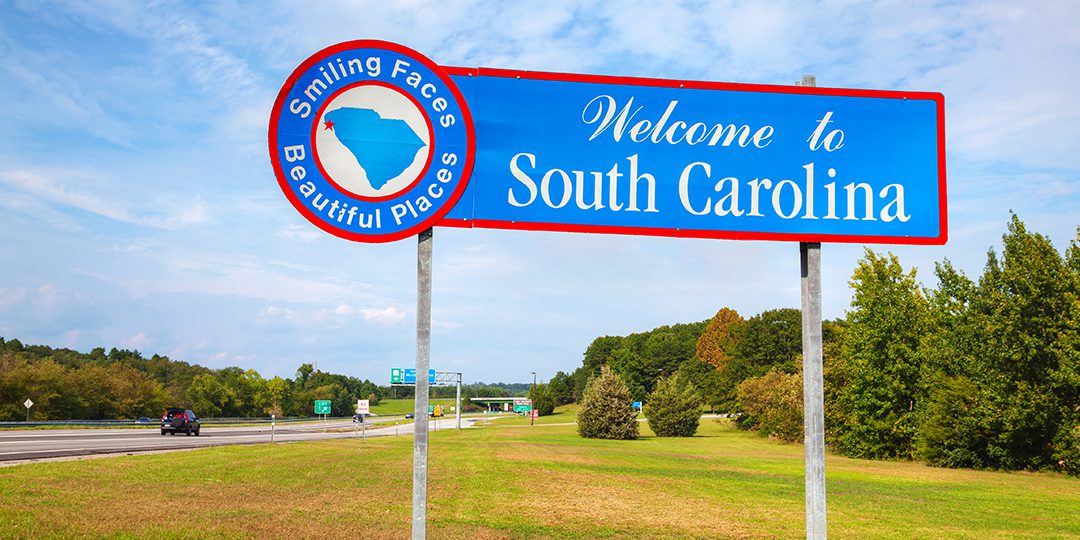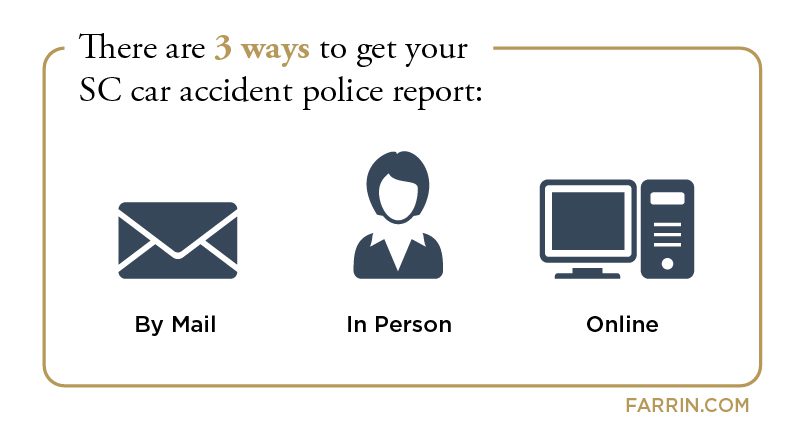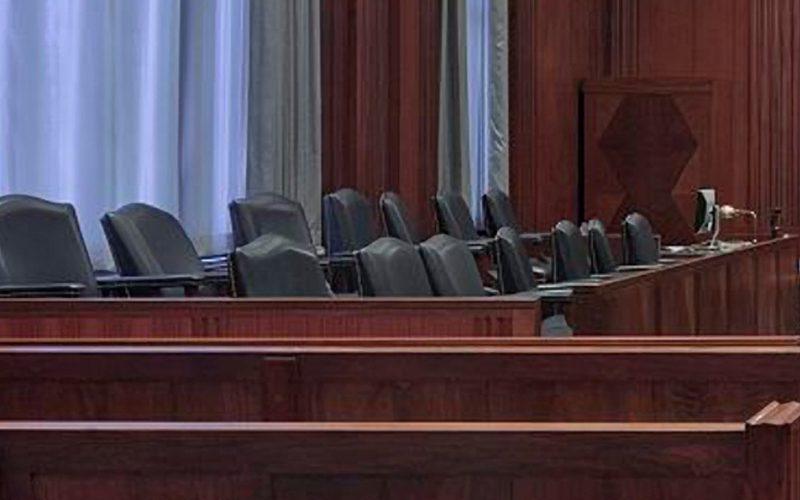So you’ve been injured a crash, and you need a South Carolina car accident police report (some people call it a traffic collision report) to make a claim against the at-fault driver’s insurance. How do you get one? How important is it? And what else should you be looking for, if anything?
How to Obtain Your South Carolina Car Accident Police Report
There are 3 ways to get your accident police report. The DMV, not the police, has your accident report.
By Mail:
1) You can download, complete, and mail two copies of form FR-50 and a check or money order for $6 to:
SCDMV
Titles Mail-in Unit FR-50
PO Box 1498
Blythewood, SC 29016-0050
In Person:
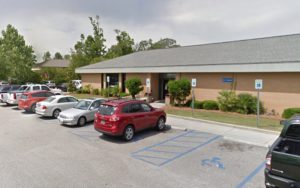
Online:
3) You can request the form online and pay by credit or debit card.
Those are the three ways to get your accident police report. But that’s not the end of the discussion. These are some of the related questions clients often ask about.
Why Do I Need My South Carolina Accident Police Report and What’s on It?
If you’re in a crash, you are required to report it under South Carolina law, and you’ll want it to make a claim against the at-fault driver. A police officer or state trooper, depending on where your accident occurred, will show up to the crash and complete what’s called the form FR-10. The officer will then file the report, generally within 24 hours, with the South Carolina Department of Motor Vehicles.
Understand that the state will not automatically send you an official copy of your police accident report. You have to get it for yourself.
Is the Accident Police Report Accurate?
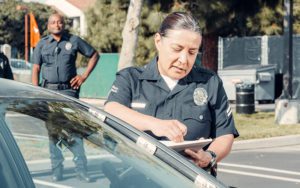
The accident report is basically raw data. It includes:
- Personal data (like your name, address, and driver’s license number)
- Location information (where the crash occurred and a description)
- Accident description (including vehicles involved, a basic diagram, witness statements, and other evidence regarding the collision)
- An injury report (including observed injuries to people involved, seat belt use if observed, and more)
- Insurance information (from both drivers)
Does the On-Scene Officer Decide Who Was At-Fault for the Wreck?
Police officers do not decide who is at fault in an accident (but they can give tickets).
A police report contains what the officer observed regardless of what the officer believes. While the accident police report is important, the official report in South Carolina does not ultimately determine fault.
That’s because evidence determines fault, not the police officer. If the evidence is up for debate or interpretation, the decision falls to a judge or jury. Even before a jury, an officer can only testify to facts and offer opinions, not pass judgment.
Witness statements may contain information that can point to blame, like speeding, erratic driving, distracted driving, and so on. If you were injured in an accident that was not your fault, and you see any errors on your report, contact us for help at 1-866-900-7078 before you make any more moves.
If you have been injured in a car accident in South Carolina, you should contact an experienced car accident injury attorney before you accept the blame. In my experience, there may be more to the story than you know.
What Can I Learn About the At-Fault Driver From the SC DMV?
A related question I often get is in regard to the other forms and records that may be available in addition to the South Carolina accident police report, such as the other person’s driving record. The DMV has a lot of information, but the law determines what you can access.
Your Records:
You can obtain a copy of your own driving record. You can always obtain the current state of your record – essentially to check your “points” – for free. Your three- or ten-year driving record is available by request, but will cost you $6.
The Other Driver’s Records:
Information about other drivers is protected by the federal Driver’s Privacy Protection Act of 1994. Under the law, you cannot obtain another driver’s information unless you either have their consent, or have a legally acceptable reason to obtain it.
Legally acceptable reasons to obtain the other driver’s records can include:
- Government agencies requesting info
- Businesses seeking to verify information
- Court proceedings
- Investigations
- Insurance company requests
- Commercial driver’s licenses
The SC DMV cannot release another driver’s information unless one of these or another acceptable criteria are met.
Does your need meet the legal requirements? It depends on your circumstances.
Why You May Want to Contact an Attorney
A South Carolina car accident lawyer can handle getting and verifying your accident police report for you as well as many other things necessary for your case. If you’ve been hurt and need help, you can contact us online or at 1-866-900-7078 any time for a free case evaluation.
We can sort through the red tape for you!
You May Also Be Interested In
The Ultimate Guide to South Carolina Car Accident Law
Is South Carolina a No-Fault State?
Comparative Negligence in South Carolina: The Definitive Guide
When to Stop for School Buses in SC (and Why)!
The Importance of a South Carolina Accident Report (and How to Read It)


